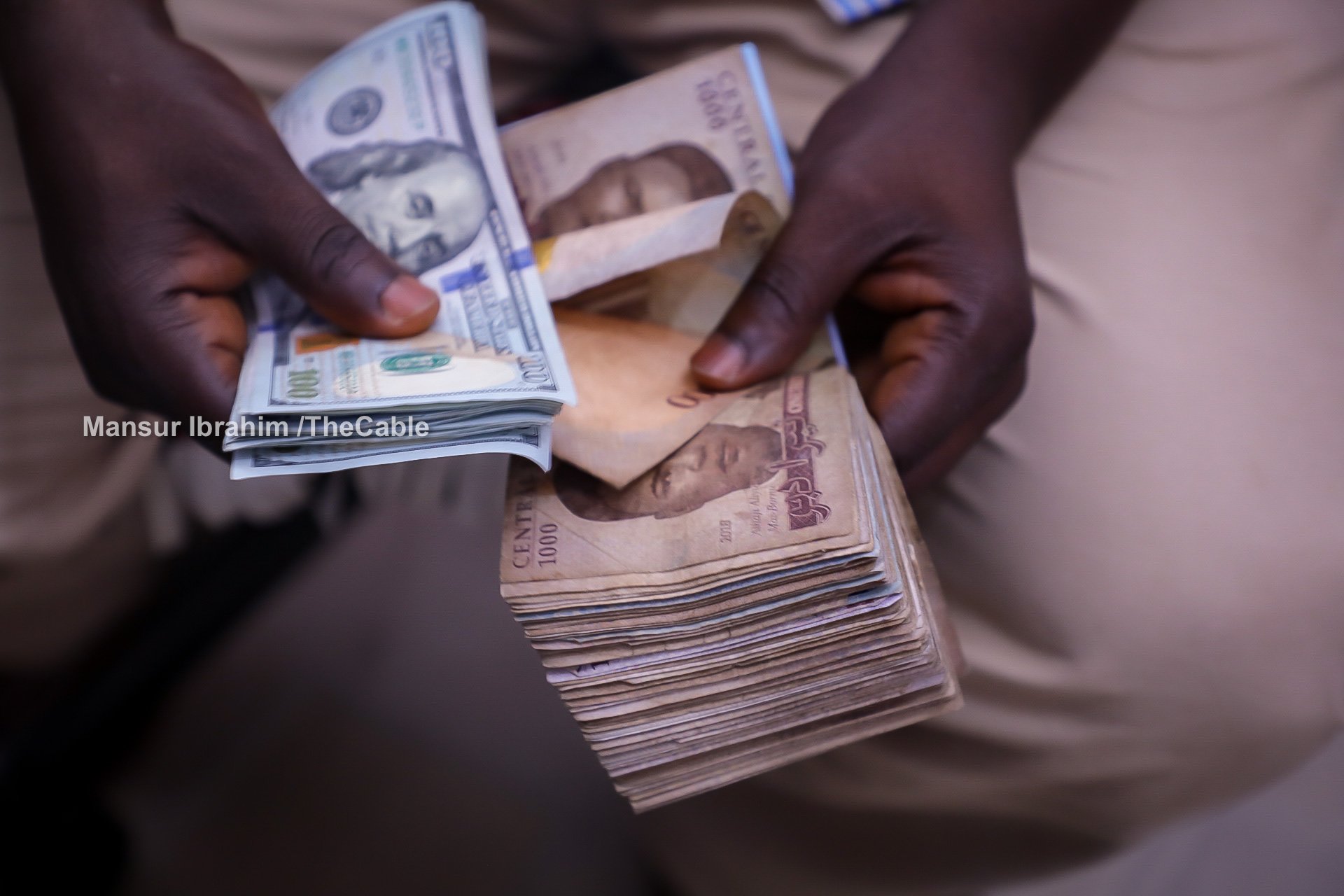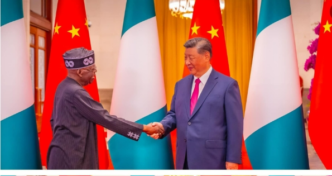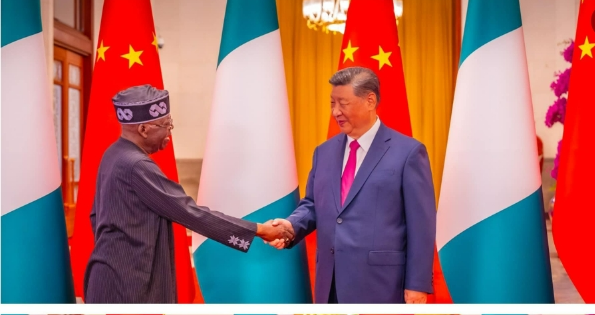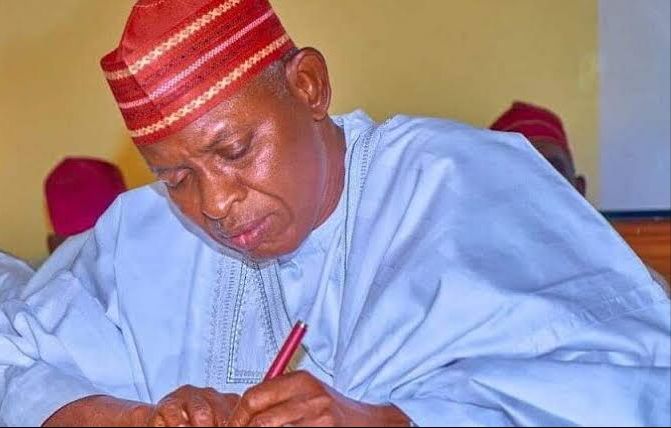BY MARO AKPOBI
The naira, Nigeria’s once-proud currency, has become a shadow of its former self. Over the past year, its value has plummeted dramatically, signalling not just a crisis in exchange rates but a larger, systemic failure in the country’s economic management. Once heralded as a symbol of sovereignty and potential, the naira now stands as a stark reminder of the deep economic woes Nigeria faces today.
Between June 2023 and September 2024, following the introduction of the managed float system on June 14, 2023, the USD has appreciated against the naira by approximately 156.7 percent. Lower denominations of the naira have become virtually useless, as they can no longer purchase basic food items—an alarming contrast to the purchasing power of the lowest denominations in many Western countries.
The currency depreciated by 61.05 percent from the period the managed float was implemented. Despite the CBN’s short-term interventions, including the launch of the EFEM platform and periodic market stabilisation efforts as seen in Q1 in 2024, the naira’s trajectory highlights the deep structural issues in Nigeria’s economy.
Advertisement
While economists debate methodologies, ordinary Nigerians feel the real impact. Inflation has surged to historic highs, and the cost of living has skyrocketed.
For example:
●A loaf of bread now costs over ₦1,500, up from ₦900 a year ago.
●The minimum wage was recently increased to ₦70,000/month, which barely covers essential expenses.
The World Bank declared the naira among the top three worst-performing currencies in the Sub-Saharan region in its October Africa’s Pulse report.
Advertisement
The Nigerian government has recently adopted new methodologies for calculating key economic indicators, leading to figures that many analysts believe do not accurately reflect the country’s economic realities. For instance, the National Bureau of Statistics (NBS) reported a significant drop in the unemployment rate—from 33.3 percent in Q4 2020 to 4.1 percent in Q1 2023—after revising its calculation methods.
Similarly, official inflation rates have been reported at 39 percent for 2024, a figure that many Nigerians find inconsistent with their daily experiences of rising prices. Another organisation has challenged this, arguing that the actual inflation rate is at least 92 percent. The removal of fuel subsidies and the devaluation of the Naira have significantly increased inflation, eroded purchasing power, and led many into poverty.
These statistical adjustments appear to downplay the severity of economic challenges, potentially serving political interests rather than providing an accurate basis for policy-making. By presenting more favourable economic indicators, the government may be attempting to project stability and progress.
Turning data into a political tool, rather than a reflection of reality, impedes the development of policies that can genuinely improve the economic well-being of Nigerians. Accurate data is essential for formulating effective strategies to combat inflation, reduce unemployment, and alleviate poverty. Without it, efforts to implement meaningful fiscal reforms are likely to fall short, prolonging the economic hardships faced by the population.
Advertisement
Since the 1980s, we have been told to liberalise the economy and exchange rate, with promises that this would attract foreign direct investment (FDI) and spur economic growth. Each time we heeded this advice, more Nigerians fell into poverty. The claim that liberalisation would unlock FDI has proven false once again.
In Q2 2024, FDI into Nigeria dropped to a historic low of $29.83 million. This marks a 65.33 percent decline from Q2 2023 and a 74.97 percent drop from Q1 2024. Despite government claims of securing $30 billion in FDI commitments, the actual inflows barely scratch the surface, making up just 1.15 percent of total capital importation for the period.
Worse still, most of the inflow consisted of loans rather than actual investment, reflecting a growing reliance on debt rather than sustainable economic growth.
Local companies have not fared any better. Multi-million-dollar losses are being declared across industries, with many businesses shutting down or exiting the country altogether. This economic devastation has been further compounded by the central bank’s implementation of IMF recommendations, which have worsened inflation and eroded consumer purchasing power. The GDP has also declined, reflecting a deeper crisis than ever before. These outcomes make it abundantly clear that the so-called reforms are not working, and liberalisation without structural reforms continues to be a recipe for economic collapse.
Advertisement
The combination of a VAT increase, subsidy removals for fuel and tuition, and electricity tariff hikes is set to bury the economy unless exports are ramped up by at least tenfold. Wages have not increased, yet the cost of imports and exports has risen dramatically, compounded by significant capital flight. On top of this, interest rates have been raised—a move that defies economic logic in the current environment. Instead of gradual adjustments, the Central Bank of Nigeria (CBN) has pursued a reckless approach, wiping out purchasing power without stimulating any meaningful economic growth.
Investors remain unprotected due to a broken security and criminal justice system. For example, Landmark reportedly invested $24.9 million only to wake up one day to find bulldozers destroying the beach and other infrastructure. Indiscriminate land seizures by the government are rampant. The economy remains heavily dependent on imports, despite being a crude oil exporter. Ironically, Nigeria also imports refined fuel, with imports from Malta increasing by 100 percent. The Nigerian National Petroleum Company (NNPC) has failed to achieve self-sufficiency, relying instead on loans to keep operations afloat.
Advertisement
The national grid collapsed at least ten times in 2024, forcing businesses to adopt alternative energy sources that are prohibitively expensive due to rising fuel costs and currency devaluation. Generators and solar panels are the only options, but their costs continue to climb. Businesses have no choice but to pass these increased operational costs onto consumers, leading to reduced consumption. However, prices have not fallen. Instead, businesses are either shutting down, selling to larger competitors with deeper pockets, or maintaining higher prices despite lower revenue rather than absorbing losses. Privatisation of the electricity industry has been catastrophic as highlighted by senators in the national assembly.
The surprising thing about listening to the senators during their meetings is that some of them are actually sound. The problem is that nothing happens after all the plenty talk. Godswill Akpabio, the senate president had this to say during the meeting: “The essence of privatisation was to inject new funds to revamp the sector but what we are seeing is something else. They never paid for the infrastructure provided by the federal government. It’s similar to what happened in the oil sector—oil wells producing up to 80,000 BPD dropped to 15,000 BPD after privatisation, without any significant investment. Some wells even declined to as low as 5,000 BPD, but the man is still flying his private jet because he made no investment and he’s recovered his money within a year. The DisCos have failed as far as I am concerned; they increase the tariff in other to make up for the infrastructure collapse.”
Advertisement
One thing you need to notice here is that it was mostly local investors that profited from this; there was barely any FDI.
For startups, the situation is even more dire. Many raised funding in USD, and the naira’s devaluation has caused their revenues, when converted to USD, to plummet. Investor updates are worsening, and the already small domestic market has shrunk further as consumers prioritise essentials like food and shelter. The combination of poorly implemented reforms and systemic inefficiencies has left businesses and individuals alike struggling to survive.
Advertisement
Customs tariffs are also priced in USD, meaning they increase the cost of imports as the exchange rate rises. This adds to inflationary pressures and further burdens businesses and consumers. Meanwhile, the national budget has ballooned by ₦10 trillion, forcing the government to sell $2 billion in Eurobonds at an exorbitant 10% interest rate just to finance the deficit.
To make matters worse, new agencies are springing up, compounding the problem of ballooning governance costs—a crisis initially fueled by widespread corruption. Despite previous calls for austerity, inefficiency and waste persist at all levels of government.
Corruption exacerbates this situation: stolen funds are converted from naira into dollars, intensifying the demand for foreign currency (“too much naira chasing limited dollars”). These funds are then stashed outside Nigeria, worsening the already dire dollar shortage and further depreciating the naira.
Devaluation creates an inflationary, not a deflationary, environment. The cost of imports rises, driving up prices for goods and services domestically. Wages must also increase to keep up with the higher cost of living, and this typically occurs either through government measures like raising taxes or by expanding the money supply.
Most countries that devalue under IMF recommendations often lack sufficient export revenue. Expecting devaluation alone to increase revenue without substantial structural reforms, such as diversifying the economy or improving export competitiveness, is overly simplistic and ineffective.
You will never negate the impact of devaluation on wage earners completely. The factors required to completely nullify its effects are extreme and rarely achievable. This is why, in a country like Nigeria, structural reforms and economic diversification must come first.
Attempting to implement these reforms after devaluation—or even simultaneously—is not only impractical but also counterproductive. Devaluation exacerbates inflation and erodes purchasing power, leaving wage earners and the broader population more vulnerable. In today’s interconnected markets, where technology facilitates real-time price adjustments, the effects of devaluation are felt almost immediately so both the cost of import and export go up except the local companies selling to foreigners decide not to raise prices and eat the loss.
Without a solid economic foundation, devaluation becomes a tool of economic destabilisation rather than a catalyst for growth. Neoliberalism has failed before and will continue to fail in Nigeria. Structural development economics is the only way forward.
The exchange rates used in this piece are the official exchange rates from CBN, Calculations are significantly worse when the parallel rates are used.
Maro Akpobi can be contacted via [email protected]
Views expressed by contributors are strictly personal and not of TheCable.
Add a comment









